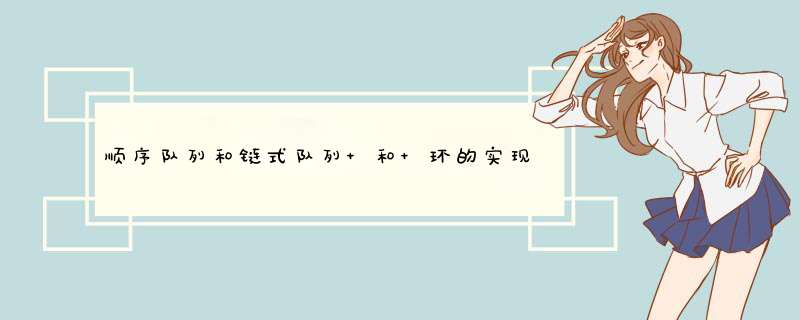
- 顺序队列
- 循环队列
Java中用数组实现的就叫顺序队列,用链表实现的就叫链式队列。
顺序队列public class ArrayQueue {
// 数组:items,数组大小:n
private String[] items;
private int n = 0;
// head 表示队头下标,tail 表示队尾下标
private int head = 0;
private int tail = 0;
// 申请一个大小为 capacity 的数组
public ArrayQueue(int capacity) {
items = new String[capacity];
n = capacity;
}
// 入队 *** 作,将 item 放入队尾
public boolean enqueue(String item) {
// tail == n 表示队列末尾没有空间了
if (tail == n) {
// tail ==n && head==0,表示整个队列都占满了
if (head == 0) return false;
// 数据搬移
for (int i = head; i < tail; ++i) {
items[i - head] = items[i];
}
// 搬移完之后重新更新 head 和 tail
tail -= head;
head = 0;
}
items[tail] = item;
++tail;
return true;
}
// 出队
public String dequeue() {
// 如果 head == tail 表示队列为空
if (head == tail) return null;
// 为了让其他语言的同学看的更加明确,把 -- *** 作放到单独一行来写了
String ret = items[head];
++head;
return ret;
}
}
- 使用数组制作队列的时候,主要是使用首尾指针进行标记,队头队尾。
- 出队的时候始终为n(1),入队的时候当尾部指针数组后续未满时,入队为N(1),当尾部数组指向最后一个索引的时候,数组整体迁移到数组索引第一个位置。当发生数据迁移的时候时间复杂度为o(n),
- 这样会大大的节省入队的时候,每次都需要发生数据迁移的时间浪费。
循环队列的难度会直线上升,主要把握好队空和队满的判定条件。
public class CircularQueue {
// 数组:items,数组大小:n
private String[] items;
private int n = 0;
// head 表示队头下标,tail 表示队尾下标
private int head = 0;
private int tail = 0;
// 申请一个大小为 capacity 的数组
public CircularQueue(int capacity) {
items = new String[capacity];
n = capacity;
}
// 入队
public boolean enqueue(String item) {
// 队列满了
if ((tail + 1) % n == head) return false;
items[tail] = item;
tail = (tail + 1) % n;
return true;
}
// 出队
public String dequeue() {
// 如果 head == tail 表示队列为空
if (head == tail) return null;
String ret = items[head];
head = (head + 1) % n;
return ret;
}
}
如有错误欢迎指正
欢迎分享,转载请注明来源:内存溢出

 微信扫一扫
微信扫一扫
 支付宝扫一扫
支付宝扫一扫
评论列表(0条)